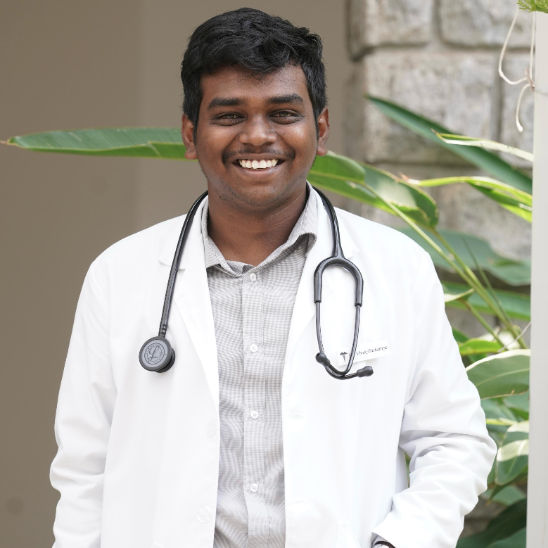Alcohol Poisoning Symptoms, Treatment and Prevention
Know about alcohol poisoning, how it affects health, causes, symptoms, emergency care in poisoning, ways to prevent alcohol poisoning and more.

Written by Dr. Rohinipriyanka Pondugula
Reviewed by Dr. Vasanthasree Nair MBBS
Last updated on 13th Jan, 2026

Introduction
Alcohol poisoning is a serious and potentially life-threatening condition that occurs when a person consumes a dangerous amount of alcohol in a short period. It can lead to severe health complications, including coma or even death, if not treated promptly. Understanding the symptoms, knowing when to seek help, and taking preventive measures can save lives.
What is Alcohol Poisoning?
Alcohol poisoning happens when the liver cannot process alcohol fast enough, causing toxic levels of alcohol to build up in the bloodstream. This affects vital functions such as breathing, heart rate, and body temperature regulation.
Unlike a regular hangover, alcohol poisoning is a medical emergency that requires immediate attention.
Consult a General Physician for Personalised Advice
Symptoms of Alcohol Poisoning
Recognising the signs of alcohol poisoning early can be lifesaving. Symptoms may include:
Confusion or disorientation – Difficulty understanding surroundings or responding to questions.
Vomiting – Persistent vomiting, which can lead to choking or dehydration.
Slow or irregular breathing – Fewer than eight breaths per minute or gaps between breaths.
Low body temperature (hypothermia) – Cold, clammy, or bluish skin.
Unconsciousness or inability to wake up – Passing out and not responding to attempts to rouse them.
Seizures – In severe cases, alcohol poisoning can trigger seizures.
If you notice any of these symptoms in someone who has been drinking, seek emergency medical help immediately.
What Causes Alcohol Poisoning?
Alcohol poisoning occurs when the body is overwhelmed by the amount of alcohol consumed. Factors that increase the risk include:
Binge drinking – Consuming large amounts of alcohol in a short time (e.g., 5+ drinks for men or 4+ for women in 2 hours).
High alcohol concentration – Drinking strong spirits or mixing different types of alcohol.
Drinking on an empty stomach – Food slows alcohol absorption, so drinking without eating increases risk.
Body weight and tolerance – Smaller individuals or those with low alcohol tolerance are more vulnerable.
Mixing alcohol with medications or drugs – Certain medications (e.g., painkillers, sedatives) can worsen alcohol’s effects.
How Alcohol Poisoning Affects Health
Excessive alcohol consumption can lead to:
Brain damage – Alcohol suppresses the central nervous system, which can slow breathing and heart rate to dangerous levels.
Choking – Vomiting while unconscious can block the airway.
Dehydration and seizures – Alcohol is a diuretic, leading to severe dehydration and electrolyte imbalances.
Hypothermia – Alcohol dilates blood vessels, causing rapid heat loss.
Death – In extreme cases, alcohol poisoning can lead to respiratory failure or cardiac arrest.
Emergency Treatment for Alcohol Poisoning
If you suspect someone has alcohol poisoning:
1. Call emergency services immediately – Do not wait for symptoms to worsen.
2. Keep them awake and sitting up (if possible) – If unconscious, place them on their side (recovery position) to prevent choking.
3. Do NOT leave them alone – Monitor breathing and pulse until help arrives.
4. Do NOT give coffee, food, or cold showers – These do not help and may worsen the condition.
5. Do NOT try to make them vomit – They could choke on vomit.
Medical professionals may provide:
IV fluids – To prevent dehydration and stabilise blood sugar.
Oxygen therapy – If breathing is slow or irregular.
Stomach pumping – In severe cases, to remove excess alcohol.
How to Prevent Alcohol Poisoning
Prevention is always better than a cure. Follow these tips to stay safe:
Drink in moderation – Stick to recommended limits (1 drink/day for women, 2 for men).
Pace yourself – Have no more than one drink per hour.
Eat before drinking – Food slows alcohol absorption.
Avoid binge drinking – Space out drinks and alternate with water.
Know your limits – Tolerance varies; don’t feel pressured to keep up with others.
Avoid mixing alcohol with medications – Check labels for warnings.
Look out for friends – Never leave someone alone if they seem too intoxicated.
When to Seek Help
If you or someone you know struggles with excessive drinking, professional help is available. Apollo 24|7 offers consultations with healthcare providers who can guide you toward safe drinking habits or treatment options if needed.
Final Thoughts
Alcohol poisoning is a medical emergency that requires immediate action. Knowing the symptoms, acting quickly, and practising safe drinking habits can prevent tragic outcomes. If you or someone you care about is at risk, don’t hesitate to seek help.
Consult a General Physician for Personalised Advice
Consult a General Physician for Personalised Advice

Dr Syed Mateen Pasha
General Physician
2 Years • MBBS
Bengaluru
PRESTIGE SHANTHINIKETAN - SOCIETY CLINIC, Bengaluru

Dr. Harshendra Jaiswal
General Physician/ Internal Medicine Specialist
12 Years • MBBS , MD (General medicine)
Kolkata
108 DHANA DHANVANTARI Clinic, Kolkata
(25+ Patients)

Dr. Anand Ravi
General Physician
2 Years • MBBS
Bengaluru
PRESTIGE SHANTHINIKETAN - SOCIETY CLINIC, Bengaluru

Dr. Vivek D
General Physician
4 Years • MBBS
Bengaluru
PRESTIGE SHANTHINIKETAN - SOCIETY CLINIC, Bengaluru

Dr. Syed Ismail Ali
General Practitioner
7 Years • MBBS
Hyderabad
Apollo 24|7 Clinic, Hyderabad